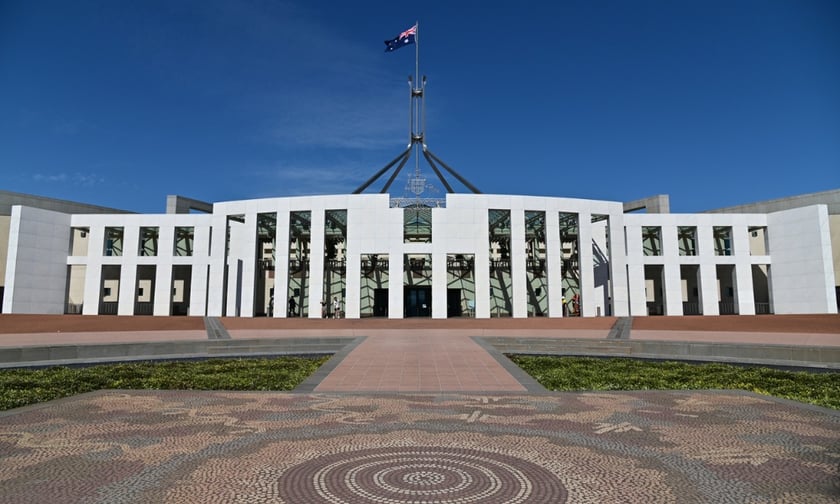

“Through this hearing, a fundamental issue has emerged - and ASIC has pointed it out - that people aren’t aware of what they’re covered for and what they’re not covered for,” said Andrew Gee. “It’s a major problem.”
Gee is the Independent Member for Calare, in NSW’s Central West region. His part of the state was severely hit by the 2022 floods. The federal government’s flood inquiry, looking into the response of insurance firms, was partly a result of Gee’s lobbying efforts.
Their appearance followed Insurance Council of Australia (ICA) CEO Andrew Hall. In his opening statement on Monday, Hall apologised on behalf of the industry, “to those customers whose claims were not handled to the standard our industry strives to achieve.”
Chair Dr Daniel Mulino, Gee and their committee colleagues all raised similar concerns with the insurers, including slow claims processes and delays assessing damage. The committee also questioned the insurance bosses about failings in their internal dispute resolution processes and issues around providing accurate building repair quotes.
Another theme from the hearing: Despite repeated messaging to the contrary, some of Australia’s biggest insurers are struggling to implement lessons that, according to the committee, they should have learned after the major flooding of 2010.
None on the committee expressed their concerns more strongly than Gee. He accused IAG of making “terrible mistakes.”
He referred to the NRMA and its flood coverage that combines rainwater and stormwater damage within a flood policy but with certain exclusions.
“This was a huge issue in our area,” said Gee. “Many of your customers were not told about these exclusions and it caused a lot of hurt to a lot of people.”
In response, IAG CEO Nick Hawkins apologised to any of those customers and said it wasn’t IAG’s intention “ever” to cause any “disconnect between their [customers’] understanding, and what we provided.”
He said IAG did “go through a process” to try and avoid the situation Gee described.
“[At] NRMA, we essentially provide full coverage for full perils across Australia, as a product, and there are very few insurance companies that do that,” said Hawkins.
The CEO said the idea behind this bundling and the exclusions was to make flood related coverage more affordable by allowing customers to opt out of certain parts.
However, Gee gave an example of a case that, he alleged, demonstrated “failures on many different levels,” including breaches of the General Insurance Code of Practice.
He also suggested that policyholder experiences like this “traumatic situation” were not uncommon for the customers of Australian insurance firms.
The case concerned one of Gee’s constituents in the town of Molong. Her insured hairdressing salon was flooded. The constituent’s policy covered flood damage, but, according to Gee, despite receiving a visit and taking advice from the NRMA’s own local representative, she was still underinsured when she made the claim.
“There are some additional things you’ve mentioned around the case that I wasn’t aware of but that does not sound great,” said Hawkins in response. “We need to do better.”
Gee also mentioned serious delays in getting loss assessors out to the salon, that was flooded in mid-November. Gee said his constituent contacted the NRMA in mid-February and was told that her information hadn’t yet been forwarded to an assessor.
Further issues followed.
In August, the constituent was in meetings involving the NRMA and the Insurance Council of Australia about her claim. Gee said she felt “traumatised” after the meetings and said this was another indication of “glaring deficiencies” in a system that is supposed to help policyholders.
“This example is very disappointing,” said Hawkins. He said there were “a number of examples where we’ve let ourselves down.”
Gee wasn’t finished.
Further problems with this particular claim included the repair quote from the NRMA’s chosen building firm. Gee said parts of the quote explaining the building repair costs were redacted and his constituent could only see them when she accepted the quote.
Hawkins said this was “unacceptable.”
“It doesn’t actually end there!” said Gee.
He said his constituent and her lawyer (working pro bono, he said) didn’t think the building quote of $66,000 from the NRMA’s building firm would cover the repairs. It was lower, he said, than other quotes. However, they accepted the quote anyway but when the construction firm refused to guarantee the work, Gee said, this deal fell though.
“But NRMA still wanted her to accept the lump sum of $66,000 to settle that claim,” said Gee. “It was a debacle.”
RACQ Group and Allianz Australia are due to appear at the hearing on Friday.
What do you think of the federal government’s inquiry into the response of insurance firms to the 2022 floods? Is it a witch hunt or could positive reforms result? Please tell us below
